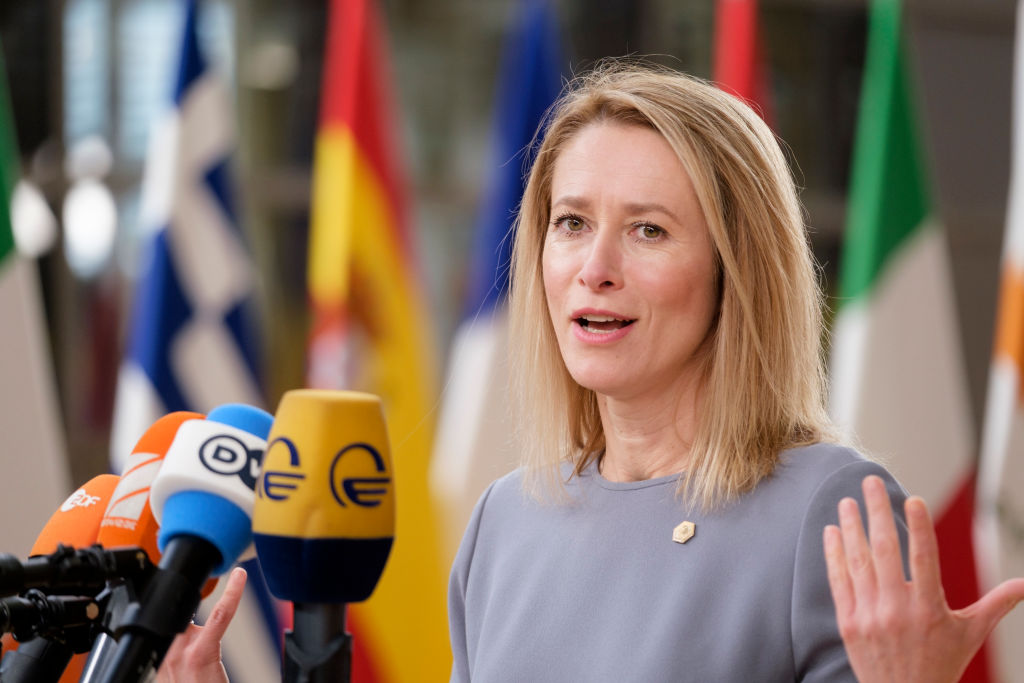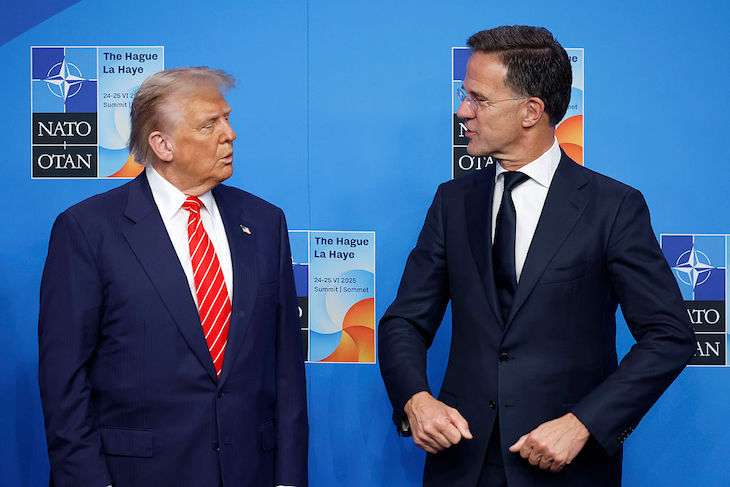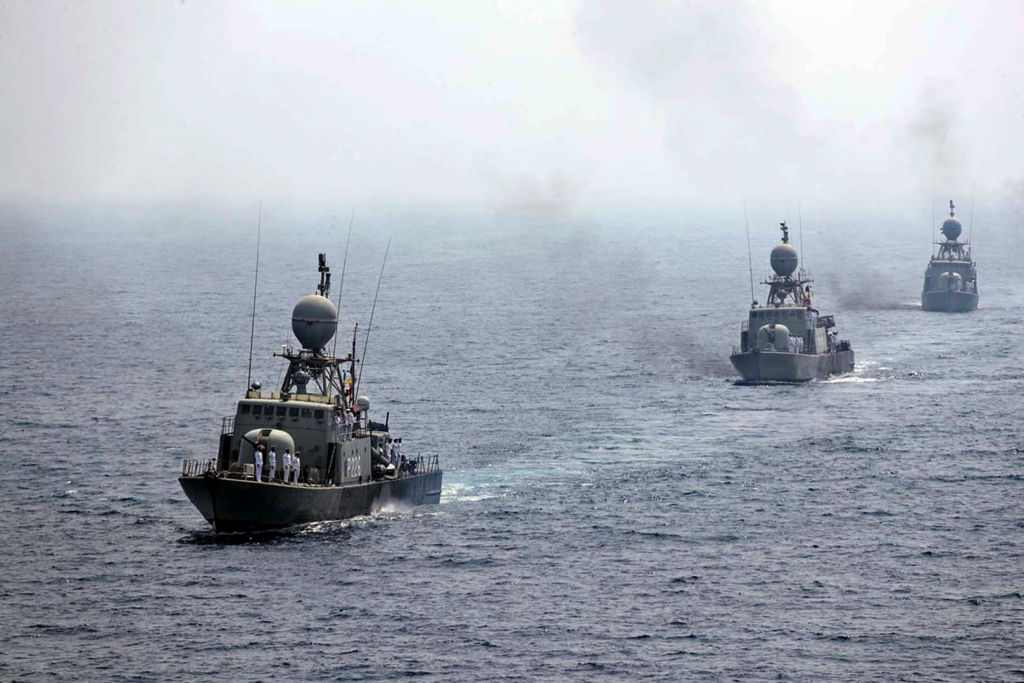“Look at the dates.” That’s what I am told as I enter the State Elders Room in Tallinn. I’m here to interview the woman dubbed Europe’s new Iron Lady — Estonia’s Prime Minister Kaja Kallas. The walls in the room between her office and the cabinet room are lined with portraits. A small plaque beneath each one records the dates of their birth and, more significantly, death. The first shows that its subject died in 1941. The next I notice also reads 1941. So too the third. And the fourth. The story is soon clear. Each of those elders of this now proud independent wealthy European state died fighting in what they call here the communist terror. This country is haunted by its past and the refusal of so many around the world to believe it could, it would, happen again.
Prime Minister Kallas is one of those who can say “I told you so” although she’s much too polite to do so. Many of her fellow EU leaders insisted that Vladimir Putin would not be stupid enough to invade a neighboring state. Some continued to insist that even after they were shown the evidence. Her family — like families all over this tiny country — know exactly what the men who rule the Kremlin are capable of. Her mother, grandmother and great-grandmother were all deported to Siberia. When she was a young girl, Kallas was taken to see the Berlin Wall by her father. She looked over it to the West, to freedom and democracy. She is now one of the most powerful advocates for the need to fight for those ideals.
The news of Russia’s invasion of Ukraine came as Estonia celebrated Independence Day with a military parade through Freedom Square in Tallinn. The commander of the 900 or so British troops stationed here, Colonel Dai Bevan, remembers watching as people in the crowds reached for their mobile phones to watch the news. My taxi driver tells me that for many the images stirred memories of watching flames engulf buildings in their city during the second world war and seeing the red glow of Helsinki just a few miles away across the water.
At the top of the steps inside the HQ of the Estonian Defense Forces stands a silver sword longer than I am tall. The inscription beneath it reads: “We are not free from the mercy of others but we are free because we fought for it ourselves.” Their commander Major General Veiko-Vello Palm tells me that all too many in the West do not understand the Russian mentality. They do not understand the concept of “win-win,” he says. Either Russia wins or she loses. He and his prime minister argue that Russia must now lose, be seen to lose and accept defeat as Russia did in Afghanistan. Any security “gray area” will lead inevitably to instability if not necessarily to war.
The next day I stand under the shadow of Warsaw Castle to watch Joe Biden speak to Poles about the battle between democracy and autocracy. Almost everyone in the crowd has a story about why they were here. An old lady pulls her anti-communist ID card from her purse to show me. A young woman tells me that her grandfather died in the Katyn massacre. A man leans over to speak of his pride that Warsaw is “the new Berlin” — the new frontier of the Free World. I am reminded of my own history. In the summer of 1989 — before the fall of the Berlin Wall — I waited for hours in a vast crowd in the center of Budapest to hear George H.W. Bush speak. People then were desperate for change. They carried their own version of the national flag, with a hole in the centre where there had once been the hammer and sickle; many had been there in 1956 before the Soviet tanks crushed their hopes. And I remember that day the following year when I stood with the crowds on top of the Wall and watched a young man jump down into no man’s land — an act that would just days earlier have led to his certain death. He handed a flower to a young East German soldier. The crowd held its breath as the soldier decided whether he dare accept it. When he did, those of us on the Wall broke into a wave of applause. Some said history stopped when it fell. What we’ve seen this week is how wrong that was.
A year ago, on February 24, I awoke to the sound of explosions close to the hotel I was staying in in Kyiv. I’d abandoned my boys at the airport as we were on our way to watch Manchester United play in Europe. “Don’t worry,” I assured my family, “he’s not mad enough to attack the capital city.” I was wrong. So many were. This year, after reporting on the mood in Europe one year on — after visiting Tallinn, Warsaw and Berlin — I’ll fly to Manchester to stand in the Stretford End and watch United play Barcelona. I’ll hug my children tight and remember how lucky — how very, very lucky — we are.
This article was originally published in The Spectator’s UK magazine. Subscribe to the World edition here.

























